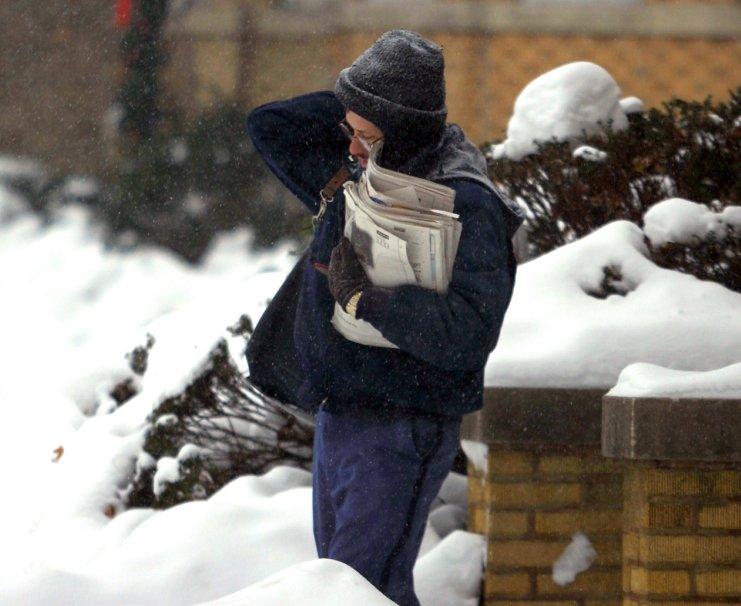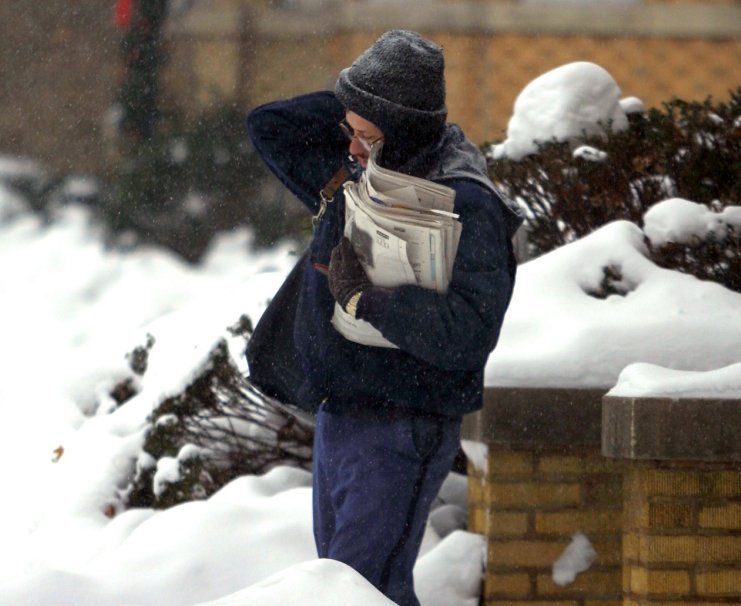No one disputes the fact that the U.S. Postal Service (USPS) is facing a dire financial crisis. However, identifying the cause has been a subject of controversy. While lawmakers believe the Postal Service is plagued by an outdated business model, many postal workers say the nation’s mail carrier is actually the victim of a man-made disaster.
Jamie Partridge, a retired letter carrier from Portland, Ore., says that email, private competition, and the recession have had little to do with the enormous and still growing Postal Service debt. According to Partridge, Congress is to blame for the $21 billion in losses the USPS has incurred over the past five years, and he’s looking to lawmakers to fix it.
Later this month, just before the U.S. House of Representatives adjourns for the July Fourth weekend, Partridge will join other postal workers and supporters on a hunger strike at the Capitol in Washington, D.C.
“We’re hoping to get Congress to stop starving the Postal Service,” Partridge said, keeping with the hunger strike theme. “They are cutting our hours in half, and we just got word that as of July 1, new delivery standards will be in place. People will be paying their bills, expecting them to be delivered the next day, and it won’t be happening.”
There are now bills before both the House and the Senate aimed at balancing the USPS budget, but the fixes they offer are similar: Citing years of dwindling sales, lawmakers have prescribed closures, service cuts, and reductions in employee pay and benefits, as cures for financial insolvency.
But critics, like Partridge, say the primary reason behind the Postal Service debt is a 2006 Congressional mandate requiring the USPS to prepay 75 years’ worth of future retiree benefits in just a decade. The cost is significant. A statement last month from the National Association of Letter Carriers (NALC) notes that, for the first half of this fiscal year, prefunding accounted for $6.2 billion of the $6.5 billion in red ink.
It’s a big bill, but legislators say it’s designed to stave off an even larger one and possibly another massive bailout. According to lawmakers, without the prefund measure, USPS liabilities would grow to $100 billion by the end of the decade. With annual revenue losses projected to continue into 2020, there are concerns that the USPS might look to taxpayers to cover the cost.
While no one is interested in encouraging another bailout, critics of the prefund mandate say that it actually serves another agenda.
“They want privatization,” says Tom Dodge, a postal worker from Baltimore who will also be participating in the hunger strike. According to him, corporate interests have colluded with Congressional leaders to undermine the USPS and break up its unions.
“The problem is companies think they can do this better than the government can. But that depends on who’s running the company,” Dodge said. “The post office has been running for 200 years. What else can you buy for 45 cents these days? If we are privatized, the rates are going to go up. People don’t realize how much that’s going to change the economy.”
According to the NALC, the service reductions that are suggested in proposed legislation would not fix the Postal Service’s problems. Instead, they say it would make things worse by driving customers away and reducing revenues.
But lawmakers, including Rep. Darrell Issa (R-Calif.), chairman of the House Committee on Oversight and Government Reform, say cutbacks are the only way for the USPS to make good on its debt. Legislators point out that aspects of private carriers, functioning on a smaller labor force with fewer benefits, demonstrate a successful model that the Postal Service can adopt. Of course, USPS employees are not convinced.
“To say that [postal workers] are overpaid is horrible,” said Dodge. “Let the people in Congress get out here and do this job and see what they say then. We’re out here in snow, rain, all kinds of weather. Who else does this kind of job? It takes a special person.”
Additional reporting by Denise Darcel
The Epoch Times publishes in 35 countries and in 19 languages. Subscribe to our e-newsletter.







